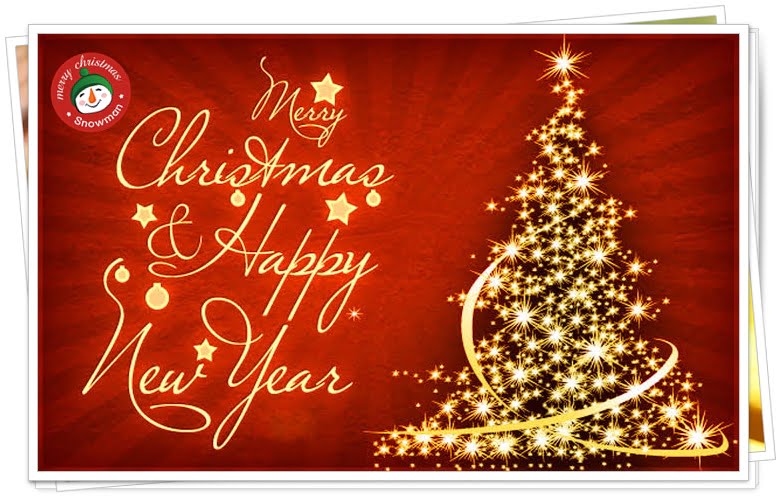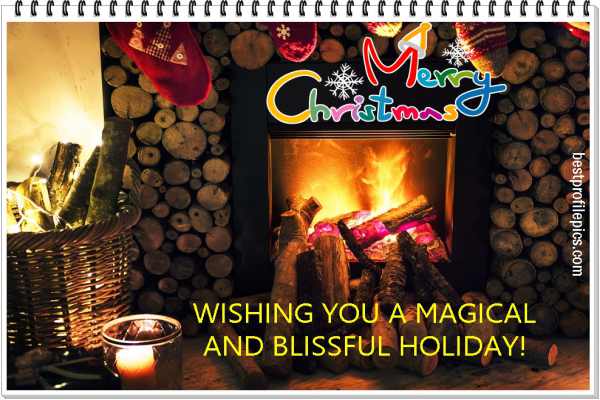Carol singing has been an integral part of the festive season for centuries, and it’s deeply intertwined with the spirit of Christmas. Carol singing is a tradition of singing religious and secular songs during the Christmas season. It is a popular activity for people of all ages and backgrounds and can be enjoyed in a variety of settings, including churches, homes, schools, and public spaces.
History of Carol Singing
The history of carol singing dates back to the early centuries of Christianity. The first carols were simple songs sung in Latin and were often used to teach people about the Bible. Over time, carols became more complex and elaborate and began to be sung in a variety of languages. Carol singing became particularly popular in Europe during the Middle Ages. Franciscan friars were particularly instrumental in spreading the tradition, as they used carols to teach people about the Christian faith. Carols were also sung by traveling minstrels, who would often perform in villages and towns during the Christmas season.
Carol Singing by Early Christians
The pagan solstice celebrations, in turn, became Christmas Celebrations of the early Christians when they began to sing Christian songs instead of the fold or pagan songs. In AD 129, a Roman Bishop proclaimed that people should sing a song called “Angel’s Hymn”. This is, in fact, the first musical composition associated with Christmas. Historians, however, are not sure how the song sounded as it is of very old origin.
ANGEL’S HYMN
BLESS me, befriend me, sweet Angel, I pray,
Watch me, defend me, by night and by day;
Shelter, enfold me within thy bright wings;
Guide me, uphold me in life’s wanderings.
Beam on my gladness, thy joy I shall share;
Shine on my sadness and sorrow I’ll bear;
Go thou before me, my path shall be clear;
Hover thou o’er me, no foe shall I fear.
Angel so holy, whom God sends to me
Sinful and lowly, my guardian to be!
Wilt thou not cherish the child of thy care?
Let me not perish, my trust is thy prayer.
Oh, may I never forget thou art near;
Keep, keep me ever in love and in fear.
Waking and sleeping, in labor and rest,
In thy sweet keeping, my life shall be blest.
The First Carol Song
The earliest known carol is a Byzantine Greek hymn called “Άναρχος θεός καταβέβηκεν” (Ánarkhos Theós katabébēken, “God, who has no beginning, descended”). It is linguistically dated to the beginning of the High Middle Ages, ca. 1000 AD. The hymn is traditionally associated with the city of Kotyora in the Pontos (modern-day Ordu, Turkey). The carol tells the story of the birth of Jesus Christ and is sung in a slow and solemn tempo. It is a beautiful and moving piece of music and is a testament to the rich history of carol singing.
The carol is still sung today in many Greek Orthodox churches and is a popular choice for Christmas concerts and performances. It is a reminder of the long and rich history of carol singing and of the power of music to bring people together. Here is an English translation of the first few lines of the carol:
God, who has no beginning, descended,
and was born of a virgin,
and became a man,
and dwelt among us.
In addition to the “Byzantine Carol,” there are a number of other early carols that date back to the Middle Ages. Some of the most popular include:
“In Dulci Jubilo” (13th century)
“Orientis partibus” (13th century)
“Adeste Fideles” (18th century)
“Silent Night” (1818)
These carols are all still sung today and are a beloved part of the Christmas season for people all over the world.
Carol Singing During Victorian Era
In the 16th century, the Protestant Reformation led to a decline in carol singing in some parts of Europe. However, the tradition remained popular in England and experienced a revival during the Victorian era. This revival was partly due to the efforts of Charles Dickens, who wrote extensively about carol singing in his novels and stories.
Popular Christmas Carols
Today, carol singing is a popular tradition all over the world. It is a way for people to come together and celebrate the Christmas season through music. Carol singing is also a way to share the Christmas story with others and to spread the message of hope and joy. Carol singing is a wonderful way to celebrate the Christmas season and to spread the joy of Christmas with others. Here are some of the most popular Christmas carols:
Jingle Bells
Joy to the World
Silent Night
Hark! The Herald Angels Sing
O Come All Ye Faithful
We Wish You a Merry Christmas
The First Noel
White Christmas
O Little Town of Bethlehem
God Rest Ye Merry, Gentlemen
It Came Upon a Midnight Clear
The Holly and the Ivy
Publication of Books on Carol Singing
While carols were initially an oral tradition, the publication of books on carol singing played a crucial role in preserving and popularizing these cherished songs. This is how Christian music started publishing and endured till its popularity till the 21st century.
The Early Christmas Music Collections
Piae Cantiones: A Finnish Songbook
One of the earliest Christmas music collections to be printed was “Piae Cantiones,” a Finnish songbook published in 1582. This remarkable collection included several songs that have stood the test of time and are still sung today, reflecting the enduring appeal of Christmas carols.
Christmas Carols in the 19th Century
The 19th century witnessed the publication of Christmas music books that significantly widened the popularity of carols. Composers like Arthur Sullivan played a vital role in rekindling interest in carols, with beloved classics such as “Good King Wenceslas” and “It Came Upon the Midnight Clear” capturing the hearts of many.
The Role of Oxford University Press (OUP)
The Oxford Book of Carols
In the 20th century, Oxford University Press (OUP) made a substantial contribution to the world of carols with the publication of “The Oxford Book of Carols” in 1928. This collection, composed by Martin Shaw, Ralph Vaughan Williams, and Percy Dearmer, reintroduced early folk songs as modern standard carols, further enriching the Christmas musical tradition.
Continuing Legacy of OUP
The legacy of OUP’s carol collections extends to the present day, with works such as “Carols for Choirs” and the “New Oxford Book of Carols” maintaining their popularity among choirs and church congregations worldwide.
 4. In the 9th and 10th centuries, the Christmas prose was introduced in Northern European monasteries. The Parisian monk Adam of Saint-Victor started to collect and develop music from the popular songs, thus introducing something which was closer to the traditional Christmas carol.
4. In the 9th and 10th centuries, the Christmas prose was introduced in Northern European monasteries. The Parisian monk Adam of Saint-Victor started to collect and develop music from the popular songs, thus introducing something which was closer to the traditional Christmas carol.
Evolution of Christmas Carols
Carols Outside the Church
Interestingly, most well-known carols were not traditionally sung in churches until the latter half of the 19th century. Charles Wesley, credited with writing the famous “Hark! The Herald Angels Sing,” contributed to this shift. Additionally, classics like “Silent Night” found their way into the Christmas repertoire and were later translated into English.
Medieval Carols
Medieval carols often focused on the Virgin Mary and the birth of Christ, offering a blend of Latin and English text. While they weren’t frequently used in churches, they held a significant role in celebratory and devotional settings.
Modern Christmas Music Tradition
Carol Services
The modern tradition of carol services, such as the renowned one at King’s College, Cambridge, has played a pivotal role in popularizing 19th-century carols and commissioning new works, making them accessible to choirs worldwide.
Timeless Classics
Popular Christmas Carols
The world of Christmas carols encompasses a wide range of themes, from the celebration of Jesus’s birth to the Twelve Days of Christmas. Some of the most enduring classics include “Silent Night,” “Hark! The Herald Angels Sing,” “Jingle Bells,” and “Joy to the World.”
The Tradition of Carol Singing
Spreading Joy
Carol singing is not only about singing songs but also about spreading joy and goodwill. Whether it’s caroling door to door or performing at community gatherings, carolers aim to bring smiles to faces.
Bonding Moments
Singing carols with family and friends fosters a sense of togetherness. It’s a heartwarming tradition that strengthens bonds and creates lasting memories.
Modern Adaptations
Contemporary Carols
While traditional carols continue to be the heart of the tradition, modern carols are also gaining popularity. Songs like “All I Want for Christmas Is You” by Mariah Carey and “Last Christmas” by Wham! have become modern classics.
Online Carol Singing
In the digital age, carol singing has found new avenues. Online platforms allow people to join virtual carol sessions, spreading the joy of Christmas worldwide.
Carol Singing and Charity
Giving Back
Many carolers use their singing to support charitable causes. Caroling for charity events or fundraising drives has become a heartwarming way to give back during the holiday season.
Spreading Hope
Carol singing has been a source of hope, especially during challenging times. In the face of adversity, communities come together to sing carols that remind us of the enduring spirit of Christmas.
Conclusion
In a world that is constantly changing, the tradition of carol singing during Christmas remains a steadfast beacon of joy, unity, and hope. Through centuries, these songs have continued to bring warmth and laughter to our hearts, making Christmas a season of celebration, love, and togetherness.
John 1:14 (NKJV)
And the Word became flesh and dwelt among us, and we beheld His glory, the glory as of the only begotten of the Father, full of grace and truth.
Isaiah 7:14
Therefore the Lord Himself will give you a sign. Behold, the virgin shall conceive and bear a son, and shall call His name Immanuel.
Also please check out ….
THE FESTIVAL OF CHRISTMAS: ORIGINS, TRADITIONS, AND SIGNIFICANCE
















